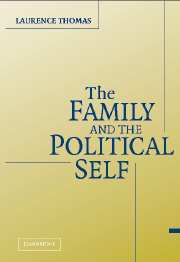Introduction
Published online by Cambridge University Press: 05 June 2012
Summary
Having children is one of the most common projects among adult human beings throughout history and across differences among human beings. The aim of having children transcends differences in religious traditions, as well as racial differences and a variety of physical differences. Adults with physical impairments are no less desirous of children than those without such impairments. What is more, having children transcends the widest possible economic and educational disparities, including even dramatic differences in freedom. Thus, even under the burden of slavery, during which many black females were forcibly impregnated, it is true nonetheless that many blacks chose to have children.
In many cases, adults want and seek to have children whatever else they do as adults and regardless of whatever other successes they may have as adults. To this end, in fact, adults will often go to extraordinary means, spending large sums of money and subjecting themselves to grueling procedures. In vitro fertilization, for instance, comes readily to mind. And I shall leave aside entirely the issue of cloning that looms large on the horizon. In any case, children are often thought to give both a completion and a meaning to life that nothing else can give. While we certainly think that a person can have a remarkably meaningful life without children, there is at least the tendency to think that children (can) contribute to a meaningful and complete life in a way that nothing else (can) does.
- Type
- Chapter
- Information
- The Family and the Political Self , pp. 1 - 16Publisher: Cambridge University PressPrint publication year: 2006

